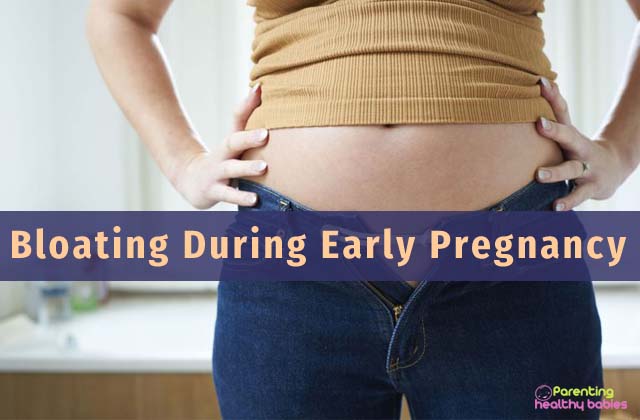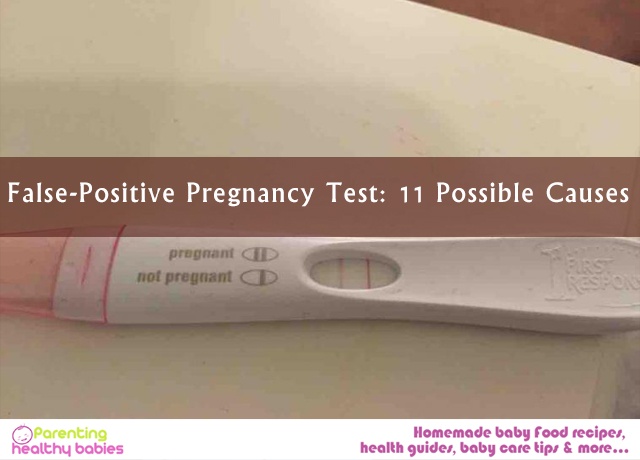Bloating is that uneasy feeling of a full and tight abdomen. It usually occurs when your abdomen is filled with gas or fluid. It is associated with gastrointestinal disorders, but can also happen due to a number of factors. Bloating is one of the most common things that women face during their periods. But it is nothing to be ashamed or scared of because all humans pass gas! But in some cases, such as this, it becomes extremely uncomfortable because of the uneasy feeling and the inability to pass that gas or fluid, which causes bloating in the first place.
Abdominal bloating is a sign of pregnancy because the hormonal changes cause your stomach to feel bloated. As it is, bloating is uncomfortable, but it becomes even more uncomfortable for pregnant women with a baby gradually growing inside their womb. There is nothing to worry because like all problems this problem can be fixed very easily.
Bloating in Early Pregnancy: 11 Tips to Prevent
In this article, we will discuss 11 tips that will help you in avoiding bloating during an early pregnancy. If you keep these tips in mind, you can easily avoid this uncomfortable situation. Below is the list of these tips-
Increase your fiber intake:
Fill up on fiber to cut back on the bloating and gas by improving digestion. Remember, digestion slows down naturally when you’re pregnant which means food spends more time in your stomach and intestines which cause more gas. Fiber can help by moving things along, alleviating the gas and thereby reducing the bloating of your stomach. While fiber can be very helpful, it may also make your bloating worse. Adding too much fiber to your diet too quickly can have the exact opposite effect, so go easy on it. Add high-fiber foods gradually to your diet, if you’re not used to eating them.
Avoid certain foods:
The foods you eat have a direct impact on the amount of gas you experience, pregnant or not. But for the pregnant woman, gassy foods can be particularly troublesome. Avoid artificial sweeteners, especially those in diet soda. Many of these artificially sweetened drinks have warnings on their labels regarding their likelihood of causing diarrhea. Gas should also be on that warning. Certain foods cause gas in just about everyone. These foods include beans, cabbage, onions, brussels sprouts, cauliflower, broccoli, asparagus, and corn; fruits such as pears, apples, prunes and peaches; whole grain products and oats; milk, ice cream and cheese; and carbonated drinks and fruit juices. This may leave you feeling as though every single food causes gas. While that’s certainly not true, many people experience gas with specific foods on an individual basis.
Have enough water:
The simple act of drinking more water can help alleviate a lot of uncomfortable pregnancy symptoms. Bloating is no different. Water will help keep things moving in your gastrointestinal tract, so you can avoid constipation and the inevitable bloat that goes along with it.
Keep a track of what you eat:
If you feel as though you’re experiencing gas on a more than normal basis, keep a track of the foods that you eat and the volume of gas experienced within six hours of each meal. If you become gassy at dinner time, check to see what you ate for lunch. It takes about a full six hours for portions of a meal to be released as gas, so if you have a particularly gassy sensation, it might not be that snack you just ate, but rather the meal you had a while ago.
Have smaller portions:
Smaller meals are easier for your body to digest as compared to huge portions. Overloading your digestive system will only lead to more gas and bloating. Plus, eating six small meals will help keep your body and your baby well nourished.
Take a walk:
A great way to deal with gas and get a bit of exercise is to walk after a meal. Take a walk around the neighborhood, wash the dishes, or just walk around in your house for a while. Sitting still makes it so the gas just remains in the bowels, causing bloating and pain. A walk might just help you in this case.
Eat slowly:
If you have a habit of forcing down your meal, try slowing it down and taking it easy when you eat. People who eat fast usually swallow a whole lot of air at the same time. All of that extra air turns into gas, which leads to even more bloating.
Elevate your leg:
If you find yourself burdened with an uncomfortable bout of gas, sit somewhere that you can elevate your feet, suggests Keller. Doing so will take the pressure of baby off of your abdomen and let your body digest freely.
Wear comfortable clothes:
Avoid wearing tight-fitting clothes. They may still dig into your abdomen, restricting digestion and causing pain. Wear loose and comfortable clothes.
Lifestyle change:
Some of your daily habits may be causing you to take in more air which can make bloating even worse. Try not to suck on hard candies or chew gum. Sit up properly when you’re eating and drinking, even if you’re only having a small snack. Avoid drinking carbonated beverages or sweetened drinks, which can cause more gas. Don’t talk while you’re eating. These changes might seem small, but they are very significant.
Maintain an exercise schedule:
Doing slight exercises in the morning will not only keep this problem at bay, but it will also keep you alert and on your feet.
Bloating, at the end of the day, is a normal part of pregnancy. If you follow these tips, you can definitely deal with it easily. But if the problem still persists, visit a doctor.
Hope this article was of help to you! Please share your comments/queries/tips with us and help us create a world full of Happy, Healthy and Empowered Women!!













